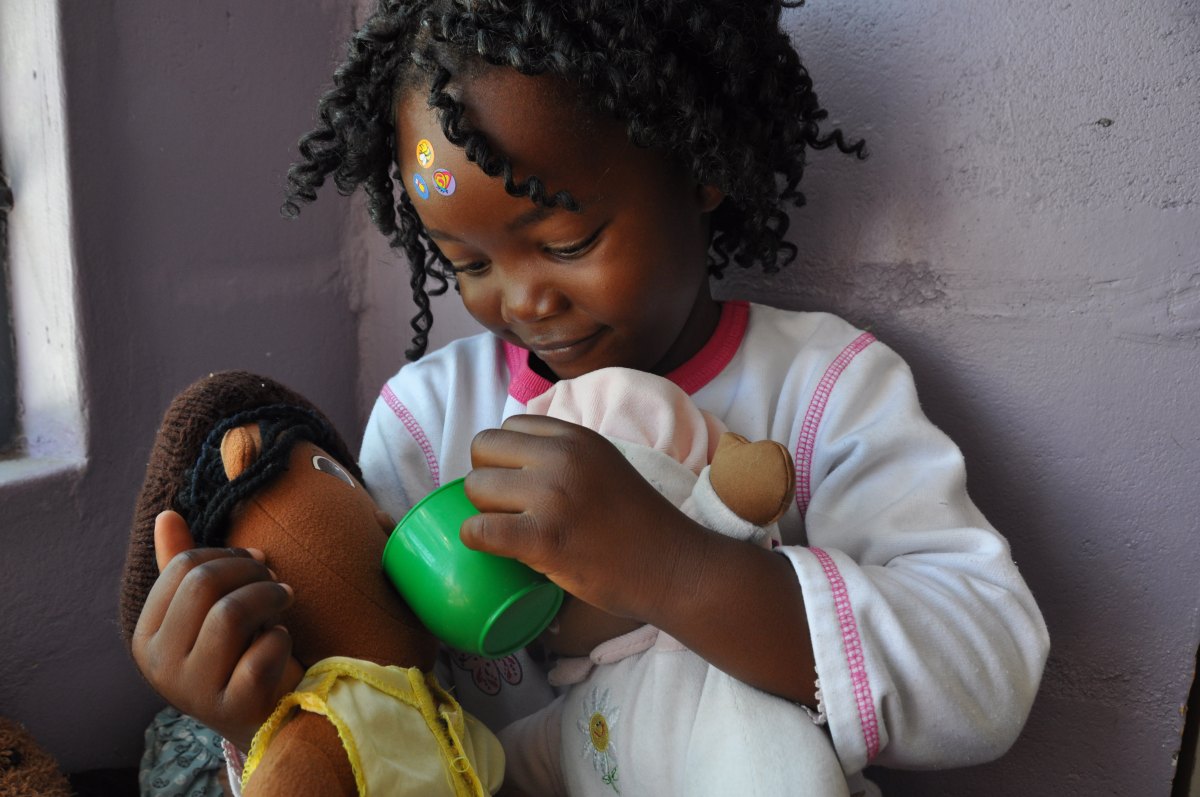
I remember ‘pretend’ play as a child. Sometimes alone, murmuring quietly to myself in a story, slipping through characters and time, being whoever I wanted to be and making things happen in ways that were larger and brighter than life. Or with my sister, moving in an enchanted space where I’d be the princess and she, being the youngest, would have to jump at my every request. Like all children, we’d spend hours weaving the raw material of our experiences into compelling play, where at once we’d make sense of and escape from our real world. And the raw material included five books a week for each of us, borrowed on bicycles at the local library and read to us by our mom and Ouma. So play, nourished as it was by a treasury of stories, fairytales and poems, opened windows to adventures in imagination, language and thinking.
Do you ever wonder whether free play, and the stories that feed it, is actually significant for learning… Or is it ‘just’ what children do when they get a break from the ‘real’ learning activities, most of which are packaged these days as worksheets and fill-in-the-answer activities? Certainly, schooling and even many reception-year classes do not appear to place much value on creativity, free play and stories. Have the babies all been thrown out with the bathwater on waves of over-bureaucratised, standardised, testing-obsessed education reforms that have taken hold? Current versions of assessment-driven curricula cast the practicalities and effects of play and engagement with stories as too messy and difficult to measure, and thus irrelevant. But what is missed out by a wholly controlled learning environment that omits the space for creative activity?
I believe that stories and play are not only the necessary building blocks for early language and literacy learning in all children, but for all emotional, social and intellectual development. As a mother and teacher of young children, I’ve spent many hours being dragged (usually willingly) into the world of storybook heroes like Anansi, Peter Pan and Pinocchio. I’ve also observed how, given half a chance, young and even not-so-young children embrace with huge energy and enthusiasm objects like tables, cardboard boxes, blankets, wooden blocks and plastic containers to help originate and recreate scenarios they choose to explore. Through such free or pretend play, children breathe enchantment into sticks, stuffed toys and other props as they absorb themselves in an informal, often mysterious but totally relevant curriculum. It involves complex self- and peer-directed collaborations, turn-taking, directing and producing of action spun together by creative and adventurous language, relationship building and making meaning.
Many parents will have noticed how from babyhood, children play alone in an intense, dream-like zone, practising, exploring and representing their experiences, ideas and emotions through softly spoken monologues, combined over time with painting, drawing or the beginnings of writing – producing story scripts like, “Now I’m Spiderman and you’re a giant and we’re fighting… fight fight…and now you’re crying because Spiderman is bigger … and look here comes Mommy so they’re hugging and being friends…
When children play, they willingly work at stretching their minds and bodies to deal with the challenges that entering and engaging with unknown, exciting or confusing information presents to them. They apply enormous self-discipline as they search their memory banks of experience and language to work out the possible rules for ways to speak and be a doctor or the sick patient; to act out how a tired mom is supposed to discipline her badly behaved child; what the child ought to do or say; or to be the magician who has the power to choose to do good or harm. By stepping into the shoes of the influential characters in their lives, whether they come from real-life or from a story, children get to cope with their own problems, think about values and learn about empathising and making judgements as they imagine and decide about different perspectives and ways of being.
Too many children lose out on the extraordinary richness of hearing extraordinary stories told or read to them, or being played with by the special people in their lives. And although it’s hard to stop children from playing at all, many ‘learning environments’ and even some home environments discourage it. But when play is not valued, and is not nourished by precious adults and the great treasuries of stories, we restrict children’s ability to fully exercise and develop the greatest assets they possess as young human beings: their imaginations and language[s]. If we continue to neglect these assets, we neglect the healthy growth of our society. Yet it is possible, even easy, to change this and it is a task that can hold enormous pleasure and satisfaction for everyone. Let’s all roll up our sleeves and get involved by making sure that we make time and space available for children to grow up with the magic and power of stories and play.
Carole Bloch is Director of the Project for the Study of Alternative Education in South Africa (PRAESA). She has a PhD in early literacy in African settings from the Carl Ozietsky University, Oldenburg, and has served as an early literacy consultant in several African countries. The main thrust of her work is to transform the way children learn to read and write by helping to create conditions that put stories, meaning making and enjoyment at the centre of literacy and biliteracy learning.
